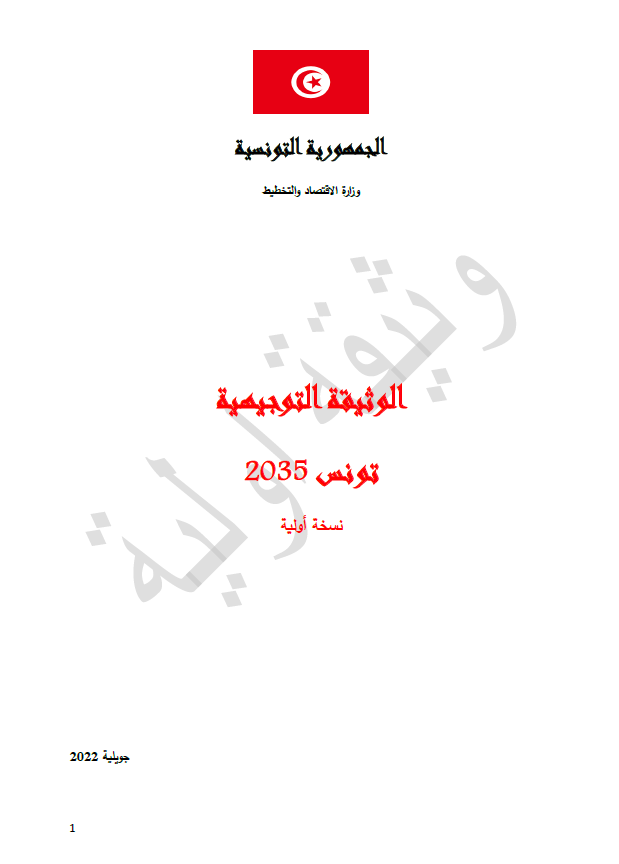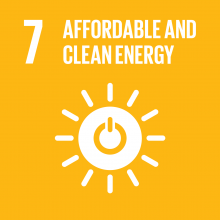
Plan Type: Vision
Member State: Tunisia
Document Language: Arabic
Tunisia 2035
July 2022
The "Vision 2035" document outlines Tunisia's plan to become a high-income nation by 2035. The plan focuses on economic growth, social justice, environmental sustainability, and technological innovation. It emphasizes the importance of stability and strategic reforms to adapt to global changes and challenges. The goal is to integrate Tunisia into the global economy, ensure sustainable development, and enhance public services and social programs.
Pillars & Objectives
Pillar:
Human Capital as the Foundation of Sustainable Development
Objectives:
- Invest in human intelligence, creativity, and innovation as essential to sustainable development.
- Address technological and digital gaps on a global scale and reduce social disparities between regions and social groups.
- Improve educational quality using modern technologies and innovative methods to support societal development.
- Promote a culture of creativity and innovation, ensuring participation and inclusion of all community members.
- Foster social integration and economic inclusion to enhance human development indicators and political progress
Pillar:
Knowledge Economy Driven by Innovation and Renewal
Objectives:
- Establish a digital environment that supports technological advancements and the digital transformation in Tunisia.
- Develop policies for technological sectors, focusing on emerging technologies such as artificial intelligence and big data.
- Enhance digital infrastructure and ensure equal access to digital education platforms.
- Promote financial inclusion and reduce cash transactions through digital banking and mobile payment services.
- Foster cybersecurity and build trust in digital systems and platforms.
Pillar:
A Diverse and Competitive Economy Supporting Private Initiative
Objectives:
- Reform economic structures to sustain financial balances and reduce unemployment and regional disparities.
- Restore trust among economic players and between Tunisia and its partners by setting clear national objectives and enhancing state governance.
- Update sectoral policies to support competitive industries, promote high-tech industries, and integrate fully into global value chains.
- Promote agricultural modernization, enhance technological and knowledge-based productivity, and ensure food security.
- Develop the real estate sector and improve service sectors such as tourism, logistics, and transport to support economic growth.
Pillar:
Green Economy and Climate Change
Objectives:
- Adapt to climate change and protect natural resources, ensuring the agricultural sector's resilience and promoting green economy practices.
- Support renewable energy as a strategic option to improve energy independence and encourage private sector investment in green energy.
- Enhance water resource management and develop alternative water sources, including treated and desalinated water.
Pillar:
Social Justice as the Foundation of Social Cohesion
Objectives:
- Guarantee a decent life for every individual and family by improving living standards and reducing poverty and unemployment rates.
- Promote private initiatives and investments in high value-added sectors with high employment capacity.
- Support social and solidarity economy sectors to provide equitable wealth distribution and support vulnerable groups.
- Ensure access to adequate housing for vulnerable populations and expand homeownership opportunities.
Pillar:
Fair Regional Development and Inclusive Spatial Planning
Objectives:
- Promote balanced regional development by utilizing local advantages and ensuring effective resource allocation.
- Encourage inclusive participation of all social groups, especially women and youth, in public life and policy-making processes.
- Develop infrastructure and improve public services in all regions to support equitable development.
 ESCWA
ESCWA










